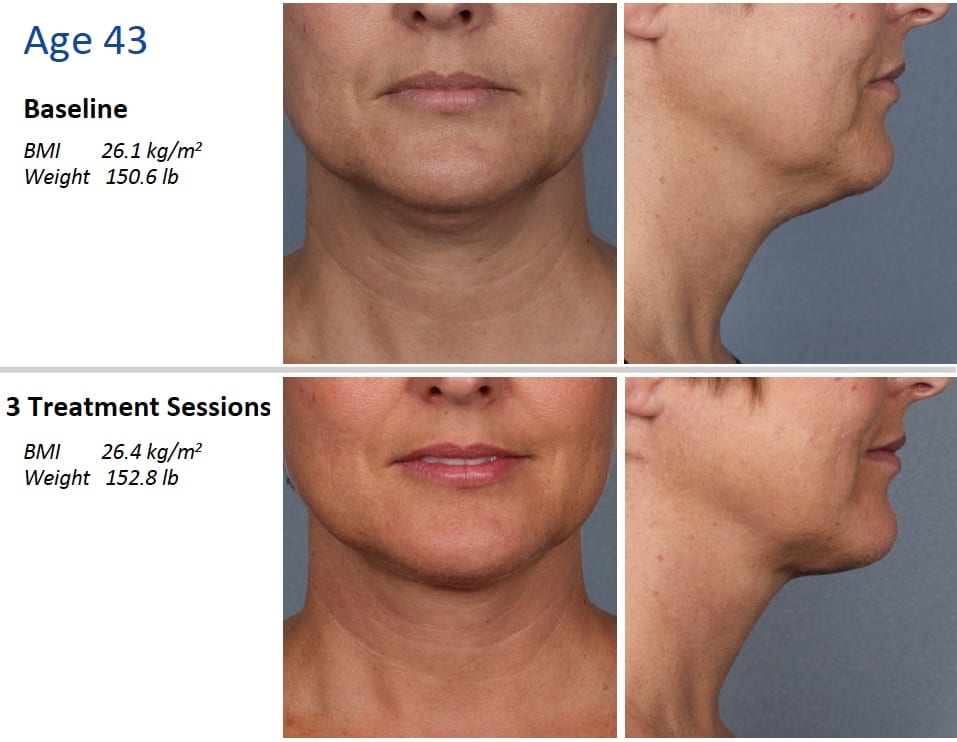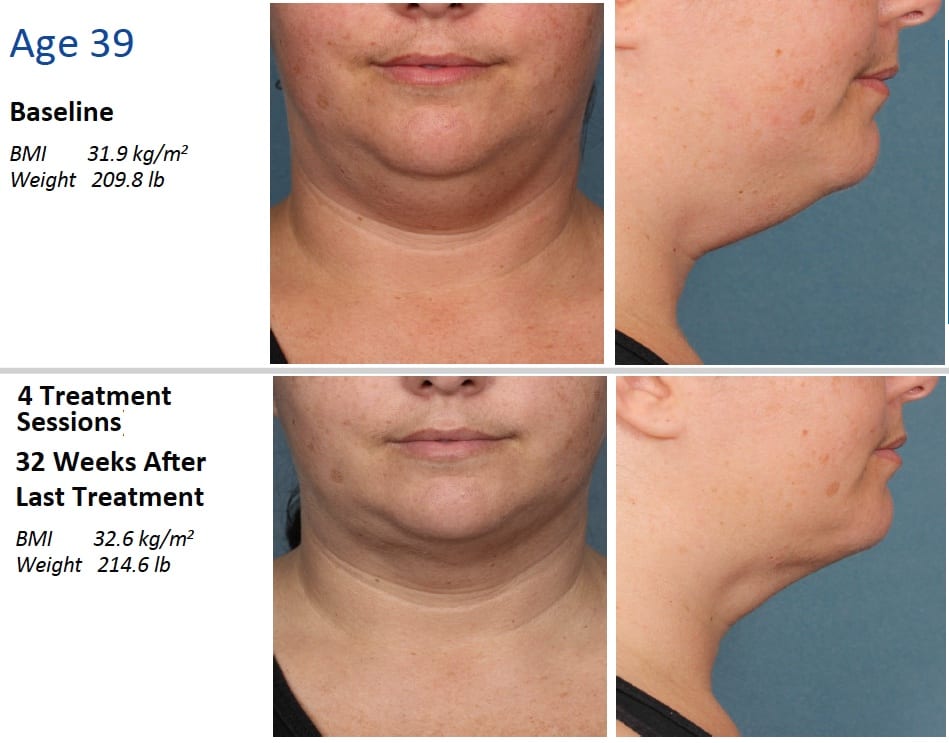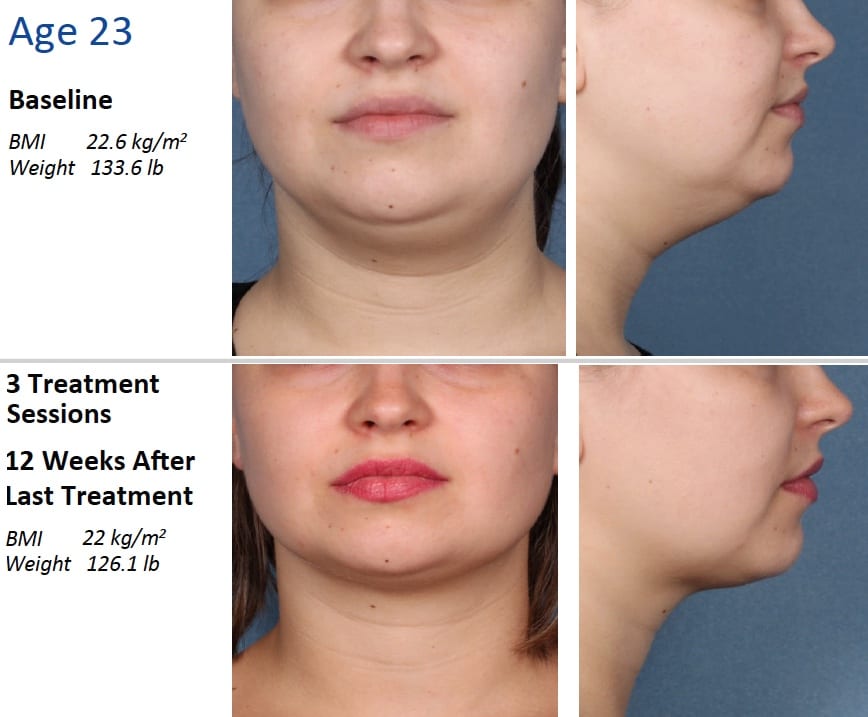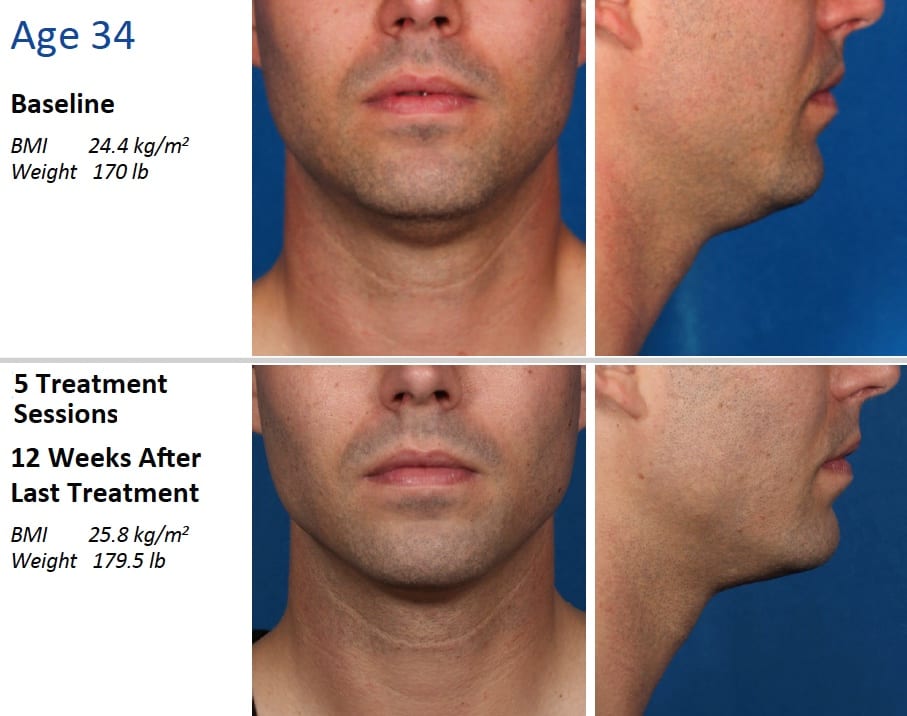What is Kybella?:
Kybella is a synthetic formulation of deoxycholic acid, which is a substance naturally synthesized by our body and used to break down and absorb dietary fat. Kybella has been under development for more than 9 years, and has been the subject of over 20 clinical studies involving more than 2600 patients. When properly injected in the chin area, it has been shown to dissolve submental fat (which causes double chin) and result in significant cosmetic improvement by creating a more streamline contour along the jawline.
What can I expect with Kybella?:
Kybella was approved by the FDA in May 2015. Dr. Chapas has participated in Kybella’s training program to train physicians nationwide since the summer of 2015. Kybella is administered by injections into the fat under the chin through a series of treatments spaced no less than one month apart. The treatment plan is tailored to the desired outcome by the treating physician. The total number of treatments varies–typically in the range between 2 and 5. We expect that most patients will receive two treatments spaced 1-2 months apart, but your physician will determine the best regime during your consultation based on your physiology and goals.
What areas can Kybella treat?:
Submental and Body.







